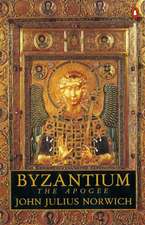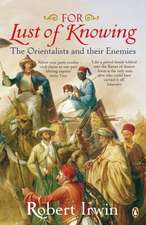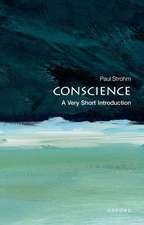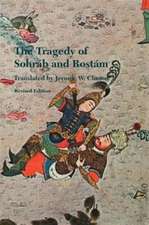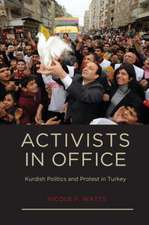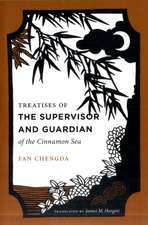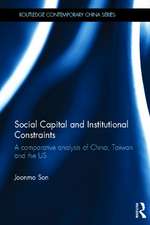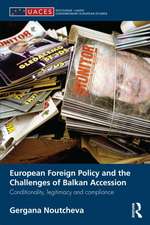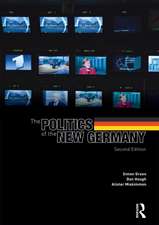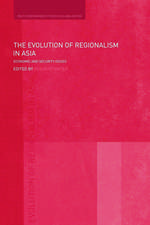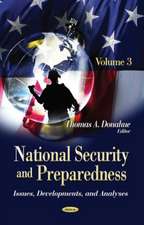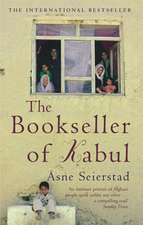Civil Society in Central Asia: Civil Society in Central Asia
Autor M. Holt Ruffin, Daniel Waugh, S. Frederick Starren Limba Engleză Hardback – 13 sep 2015
"Civil Society in Central Asia" is a pathbreaking collection of essays by scholars and activists that illuminates the social and institutional forces shaping this important region's future. An appendix provides a guide to projects being carried out by local and international groups.
| Toate formatele și edițiile | Preț | Express |
|---|---|---|
| Paperback (1) | 230.71 lei 6-8 săpt. | |
| MV – University of Washington Press – 30 iun 1999 | 230.71 lei 6-8 săpt. | |
| Hardback (1) | 650.08 lei 6-8 săpt. | |
| MV – University of Washington Press – 13 sep 2015 | 650.08 lei 6-8 săpt. |
Preț: 650.08 lei
Preț vechi: 844.25 lei
-23% Nou
Puncte Express: 975
Preț estimativ în valută:
124.42€ • 129.41$ • 104.27£
124.42€ • 129.41$ • 104.27£
Carte tipărită la comandă
Livrare economică 13-27 martie
Preluare comenzi: 021 569.72.76
Specificații
ISBN-13: 9780295998879
ISBN-10: 0295998873
Pagini: 320
Dimensiuni: 160 x 235 x 28 mm
Greutate: 0.64 kg
Editura: MV – University of Washington Press
Seria Civil Society in Central Asia
ISBN-10: 0295998873
Pagini: 320
Dimensiuni: 160 x 235 x 28 mm
Greutate: 0.64 kg
Editura: MV – University of Washington Press
Seria Civil Society in Central Asia
Cuprins
Notă biografică
Recenzii
"This thought-provoking book should be required reading for anyone seriously concerned with current developments in Central Asia, but will also be of interest to anyone who is working on the 'transition' in post-Soviet societies and development studies in general. . . . The chapters are of a consistently high quality . . . It must be hoped that this book will help stimulate a deeper debate amongst policy-makers, donors and NGO activists themselves about the record of and prospects for Western engagement with political and social reform in Central Asia."--Asian Affairs, June 2000
Textul de pe ultima copertă
Central Asia, home of Tamerlane and the Silk Road, is a crossroads of great cultures and civilizations. In 1991 five nations at the heart of the region -- Kazakstan, Kyrgyzstan, Tajikistan, Turkmenistan, and Uzbekistan -- suddenly became independent from the USSR. Today they sit strategically between Russia, China, and Iran, holding some of the world's largest deposits of oil and natural gas. Long-suppressed ethnic identities are finding new expression in language, religion, the arts, international alignments -- and occasional civil conflicts. In the decades ahead, what kind of societies will the more than 50 million people living in Central Asia create? Single-party secular states, Islamic republics, market democracies, something else?
Civil Society in Central Asia is a pathbreaking collection of essays by scholars and activists that illuminates the social and institutional forces shaping this important region's future. Are the foundations of a democratic order emerging? As the essays suggest, trends are contradictory and vary in each country.
This timely book matches contributions by leading specialists such as S. Frederick Starr, Olivier Roy, Scott Horton, Alla Kazakina, Abdumannob Polat, and Reuel Hanks with the insights of individuals who have been on the front lines of the struggle for civil society in Central Asia itself -- representatives of organizations such as Counterpart, Internews, and the Kazakstan International Bureau for Human Rights. Topics range from the legal framework for free association to grassroots movements for environmental protection, the resurgence of Islam, and the viability of the Soviet-era collective farms. A 75-page appendix provides a guide tomany of the most significant projects being carried out by local and international NGOs in the region.
Civil Society in Central Asia is a pathbreaking collection of essays by scholars and activists that illuminates the social and institutional forces shaping this important region's future. Are the foundations of a democratic order emerging? As the essays suggest, trends are contradictory and vary in each country.
This timely book matches contributions by leading specialists such as S. Frederick Starr, Olivier Roy, Scott Horton, Alla Kazakina, Abdumannob Polat, and Reuel Hanks with the insights of individuals who have been on the front lines of the struggle for civil society in Central Asia itself -- representatives of organizations such as Counterpart, Internews, and the Kazakstan International Bureau for Human Rights. Topics range from the legal framework for free association to grassroots movements for environmental protection, the resurgence of Islam, and the viability of the Soviet-era collective farms. A 75-page appendix provides a guide tomany of the most significant projects being carried out by local and international NGOs in the region.



